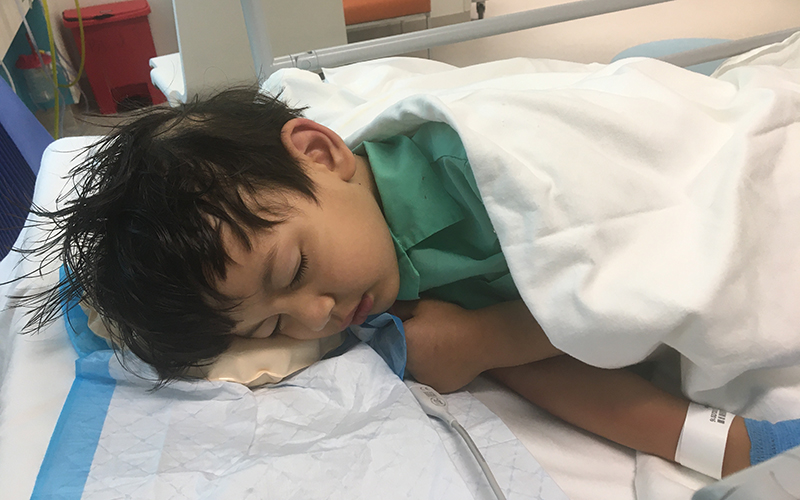Search
Research
Preoperative preparation of children with upper respiratory tract infection: a focussed narrative reviewThis review summarises the current evidence for the perioperative preparation in children with upper respiratory tract infections (URTI), including COVID-19 infection. URTI, including COVID-19 infection, are common and frequent in children who present for elective surgery. Children with URTI are at increased risk of perioperative respiratory adverse events.
Research
Patient preferences for prophylactic regimens requiring regular injections in children and adolescents: A systematic review and thematic analysisAt present, limited literature exists exploring patient preferences for prophylactic treatment of acute rheumatic fever and rheumatic heart disease. Given low treatment completion rates to this treatment in Australia, where the burden of disease predominantly affects Aboriginal and Torres Strait Islander people, an improved understanding of factors driving patient preference is required to improve outcomes.
Research
Global, regional, and national disease burden estimates of acute lower respiratory infections due to respiratory syncytial virus in children younger than 5 years in 2019: a systematic analysisRespiratory syncytial virus (RSV) is the most common cause of acute lower respiratory infection in young children. We previously estimated that in 2015, 33·1 million episodes of RSV-associated acute lower respiratory infection occurred in children aged 0-60 months, resulting in a total of 118 200 deaths worldwide.

News & Events
Strep A hits Perth family twice in one yearCharlie, 6, has ended up in hospital twice with invasive Strep A infection over his short lifetime – the first time when just three years old.

News & Events
RSV responsible for one out of every 50 childhood deaths worldwideThe urgency for a world-first respiratory syncytial virus vaccine is at an all-time high.

News & Events
Prestigious grants to support lung health and suicide prevention researchTwo researchers focused on improving outcomes for children with chronic lung disease and averting suicide contagion and suicide clusters in young people have won prestigious Investigator Grants from the National Health and Medical Research Council.
Research
Respiratory Viral Testing Rate Patterns in Young Children Attending Tertiary Care Across Western Australia: A Population-Based Birth Cohort StudyBelaynew Christopher Peter Hannah Minda Huong Taye Blyth Richmond Moore Sarna Le MD, MPH, PhD MBBS (Hons) DCH FRACP FRCPA PhD MBBS MRCP(UK) FRACP OAM
Research
Study of Children Aged Under 2 Years Admitted With RSV at Four Australian Hospitals [2021–2022]Primary aim was to review severe acute respiratory infections (SARI) hospitalisations caused by respiratory syncytial virus (RSV) in children aged < 2 years in paediatric hospitals in Australia. Secondary aims included RSV subtyping, assessing RSV seasonality and contributing to the World Health Organisation's RSV surveillance programme.
Research
Cohort profile: A population-based record linkage platform to address critical epidemiological evidence gaps in respiratory syncytial virus and other respiratory infectionsThe Western Australia (WA) Respiratory Infections Linked Data Platform is a population-based cohort established to investigate the epidemiology of RSV and other respiratory infections in children aged 0-10 years, incorporating microbiological testing patterns, hospital admissions, emergency department presentations, and socio-demographic data.
Research
Nirsevimab immunisation of infants and respiratory syncytial virus (RSV)-associated hospitalisations, Western Australia, 2024: a population-based analysisChristopher Peter Hannah Blyth Richmond Moore MBBS (Hons) DCH FRACP FRCPA PhD MBBS MRCP(UK) FRACP OAM BSc (Hons) GradDipClinEpi PhD Centre Head,
